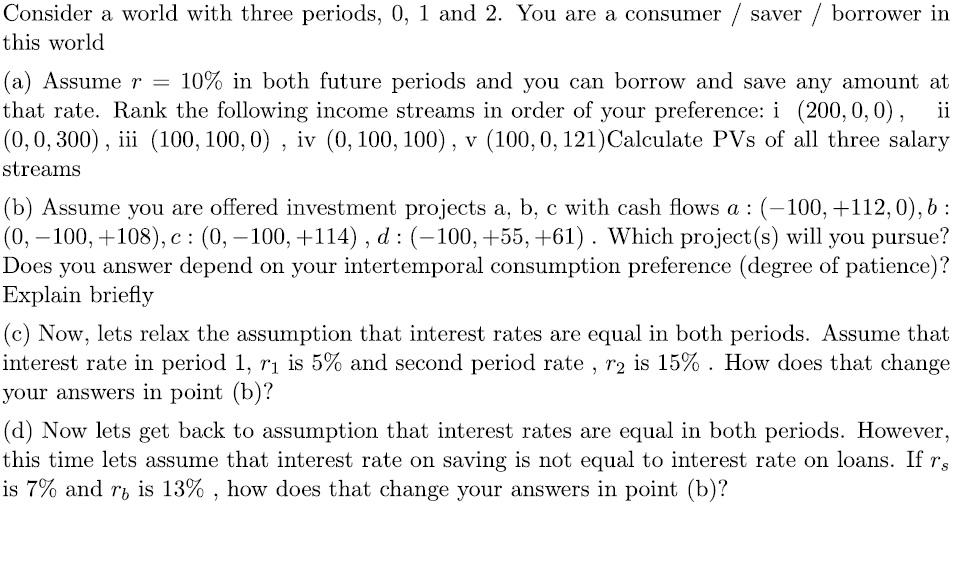
Consider a world with three periods, 0, 1 and 2. You are a consumer / saver / borrower in this world (a) Assume r = 10% in both future periods and you can borrow and save any amount at that rate. Rank the following income streams in order of your preference: i (200,0,0), ii (0,0,300), iii (100, 100,0), iv (0, 100, 100), v (100,0,121)Calculate PVs of all three salary streams (b) Assume you are offered investment projects a, b, c with cash flows a:(-100, +112,0), b: (0, -100, +108),c: (0, -100, +114), d: (-100, +55, +61). Which project(s) will you pursue? Does you answer depend on your intertemporal consumption preference (degree of patience)? Explain briefly (c) Now, lets relax the assumption that interest rates are equal in both periods. Assume that interest rate in period 1, r is 5% and second period rate , r2 is 15% . How does that change your answers in point (b)? (d) Now lets get back to assumption that interest rates are equal in both periods. However, this time lets assume that interest rate on saving is not equal to interest rate on loans. If rs is 7% and ry is 13% , how does that change your answers in point (b)? Consider a world with three periods, 0, 1 and 2. You are a consumer / saver / borrower in this world (a) Assume r = 10% in both future periods and you can borrow and save any amount at that rate. Rank the following income streams in order of your preference: i (200,0,0), ii (0,0,300), iii (100, 100,0), iv (0, 100, 100), v (100,0,121)Calculate PVs of all three salary streams (b) Assume you are offered investment projects a, b, c with cash flows a:(-100, +112,0), b: (0, -100, +108),c: (0, -100, +114), d: (-100, +55, +61). Which project(s) will you pursue? Does you answer depend on your intertemporal consumption preference (degree of patience)? Explain briefly (c) Now, lets relax the assumption that interest rates are equal in both periods. Assume that interest rate in period 1, r is 5% and second period rate , r2 is 15% . How does that change your answers in point (b)? (d) Now lets get back to assumption that interest rates are equal in both periods. However, this time lets assume that interest rate on saving is not equal to interest rate on loans. If rs is 7% and ry is 13% , how does that change your answers in point (b)







